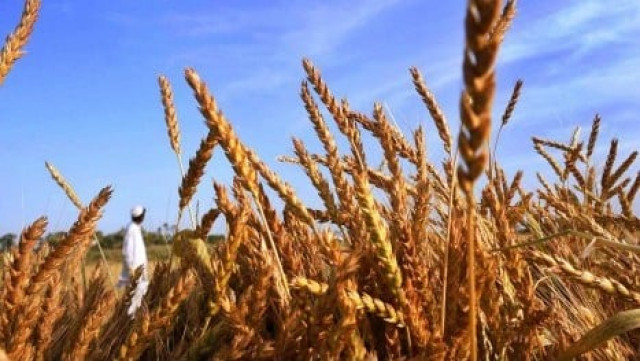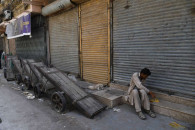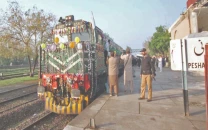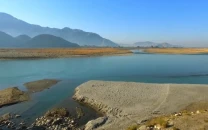K-P starts wheat procurement
Purchase from local farmers will save Rs12b, says CM

Khyber-Pakhtunkhwa Chief Minister Sardar Ali Amin Khan Gandapur on Wednesday inaugurated the wheat procurement process for the current season at the Provincial Reserve Centre (PRC) of the Food Department in DI Khan.
Accompanied by Provincial Minister of Food, Zahir Shah Toru, and senior officials from the Food Department and district administration, the chief minister received a comprehensive briefing on wheat procurement and storage arrangements.
In his address during the ceremony, the chief minister outlined the procurement plan, stating that the province aims to procure a total of 300,000 metric tons of wheat from local farmers. Notably, 40,000 metric tons of wheat will be purchased directly from farmers in DI Khan.
Read PTI calls for judicial commission to investigate wheat scandal
The procurement price has been set at Rs3,900 per 40 kg, amounting to a cumulative cost of Rs29 billion. Emphasizing the government’s commitment to supporting farmers and fostering their prosperity, the chief minister reiterated that facilitating and encouraging farmers remains a top priority for the provincial administration.
He underscored the implementation of pragmatic measures aimed at achieving this objective.
“It will be ensured that farmers receive their due rights without hindrance,” he asserted, underlining the commitment to transparency in the procurement process. District-level committees have been established, along with a control room and an online app, to facilitate this transparency.
The provincial government anticipates a benefit of Rs12 billion from purchasing wheat from local farmers, earmarked for the construction and renovation of wheat warehouses.
The chief minister emphasized a first-come, first-served approach to procurement, urging farmers to actively participate in implementing government policies.
He stressed a zero-tolerance policy towards corruption and bribery, affirming strict actions against offenders. The government aims for transparency across departments, urging public cooperation in rejecting bribery for their rights. Highlighting the societal impact of corruption, he called for collective efforts to eradicate it.
Notably, despite being primarily reliant on Punjab for flour supply, the K-P province only purchases 10 percent of its total wheat requirement, highlighting the need for self-sufficiency initiatives.
“It will be ensured that farmers receive their due rights without hindrance,” he asserted, underlining the commitment to transparency in the procurement process. District-level committees have been established, along with a control room and an online app, to facilitate this transparency.
Notably, despite being primarily reliant on Punjab for flour supply, the K-P province only purchases 10 percent of its total wheat requirement, highlighting the need for self-sufficiency initiatives.
“People must fulfill their role and refrain from resorting to bribery for their entitlements, as it perpetuates corruption involving both parties,” he emphasized. “Those found engaged in bribery will face consequences,” he warned, underscoring the pervasive threat of corruption in society. “We must collectively eradicate this scourge,” he urged, stressing the need for participation from all stakeholders, especially the general public, in combating corruption.
Published in The Express Tribune May 9th, 2024.



















COMMENTS
Comments are moderated and generally will be posted if they are on-topic and not abusive.
For more information, please see our Comments FAQ